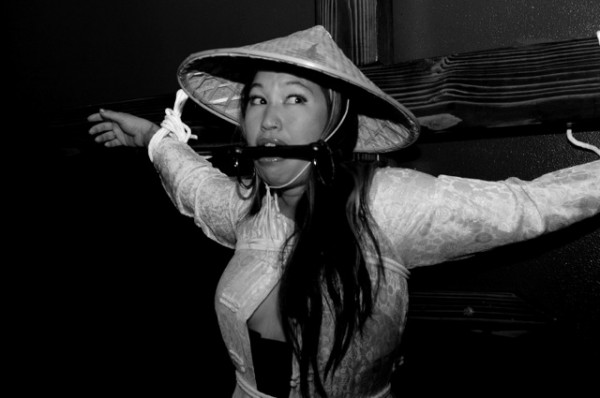
Participants: Ho Lee Fuk 1, Nada 2, Christian Vega3, and Kate Zen; moderated by Mariko Passion
We at Tits and Sass wanted to run a series on racial fetishization in sex work. We were interested in questions like “What is it like for sex workers of color to labor in an industry where customers’ racist attitudes are often allowed to run rampant and may even be encouraged by management or workers themselves as a way to generate more income?” “How does your race shape the way you create and market your work persona?” “Are there advantages as well as disadvantages to being of color and working in the sex industry?” Mariko took this idea, found participants, and ran with it, creating an East Asian sex worker round table. We’d also love to hear from non-Asian sex workers of color on their fetishization in the sex trade and how they cope with it, capitalize on it, and rise above it.
Note from Mariko: This is just one roundtable. No social justice lens was used to select the voices heard here, and to be transparent, all the participants have a four year degree and all except one are part of pretty exclusive circles of global activism and First World/class privileged cisgendered folks. This post is not meant to be THE voice of East Asian sex workers, just an interesting, well voiced snapshot.
What are some racialized marketing techniques you have experimented with in your sex work?
Ho Lee Fuk: My ad did say Asian, and I had a full face pic, but it was both to advertise my race and to warn off clients who weren’t seeking [an] Asian [provider]. Of the great and minor disappointments in life, there’s nothing like getting dim sum when you really want lasagna.
Nada: I just try to be myself, I don’t put ASIAN ASIAN ASIAN everywhere.
Kate Zen: Oh, I market it consciously. Especially here in Quebec, where there are fewer Asians around.
Ho Lee Fuk: There are like four male sex workers in the whole East Bay (location, location, location!), and I was the only Asian. Which meant I didn’t have to compete with these muscle girls with nine inch cocks working in SF. I was kind of the prettiest dish on the knick-knacks table at the church bazaar.
What is one scene involving Asian race play that you refuse to do? What is your criteria for rejection?
Kate Zen: I’m kind of ashamed to say that I don’t have a strong criteria for rejection. If you pay me enough money, most dominant roles are fair game, since it’s all clearly pretend to me anyways. I feel that my client’s personal ignorance is his own problem. I don’t usually make it my job to educate him. However, I don’t often switch or play submissive roles, which is more often the Asian stereotype—so sometimes, just by insisting on a dominant role in every scene, I feel that I am rejecting many Asian stereotypes. In fact, it’s a relief that I can say: “Hey Mom! I’m not exactly a doctor like you wanted, but sometimes, I still get to wear a stethoscope!”
Nada: I refused to be a yoga teacher. I think it is the worst kind of appropriation in the West. But don’t worry—I only apply this criteria to my own actions. I understand everyone will do what they need to in their own lives.
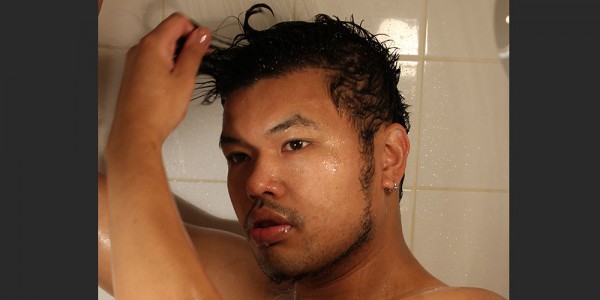
What is one scene involving Asian race play that you did and actually thought was hot?
Nada: I played the migrant Asian worker card at a Melbourne Uni[versity] soap box as part of the Sex Work Festival in Melbourne to name and shame people that patronize Asian migrant workers.That was hot.
KZ: [I have a client whose] fantasies are often very racialized in nature, [but] I enjoy them out of the pure pleasure of performing these extremely imaginative scenarios that he designs. This client almost always wants me to start out [playing the part of] a Korean babysitter and foreign exchange student, with a “thick but adorable” accent: I am to poison his wife, force him to sign all his accounts and properties to me, then force him to swear at his dying wife, who is played by a throw pillow.
Do you think we have more of a right to cultural appropriation than white Americans do?
KZ: I think the whole idea of “cultural appropriation” is not entirely logical, and people who get all worked up about it tie themselves up in angry activist knots, trying to forbid others from doing certain things they’ve officiated as offensive, which really seems to me to be a bit like fighting a waterfall with a wooden paddle—I hate to be un-PC on this topic, but culture is fluid and ever-changing, and your ideas of what images belong to what peoples are also limited by this historical moment, not taking into consideration the degree of cultural exchange throughout human history. In the contemporary “culture” of globalized capitalism, ideas travel so fast that it’s silly to try to stop them with angry bans; money and attention capital are the only real drivers and boundary lines in the adaptation of images and ideas. Asians are mad quick to appropriate Western culture, Gangnam style, in K-pop and Asian movies; so are Latin Americans and people in the Middle East. It’s racist to call it “cultural appropriation” only if it travels in one direction; and call it Hollywood “hegemony” if it travels in the other. It assumes a bit too much power and will upon the “evil oppressive white folks,” not realizing that dominance/power is a rolling roulette, and cultural assimilation happens bi-directionally when different groups of people live in proximity to one another. It’s true that different symbols mean different things to different people, and people can look really ignorant when they wear a symbol without knowing its full history; but even from generation to generation within an ethnic group, and from individual to individual, our adaptation of various cultural symbols is inconsistent and transformative. Whole civilizations have been conquered in history, and both the colonizer and the colonized have influenced each other in different ways, to different degrees—if we’re going to get really worked up about every single image or symbol that comes from a different historical or geographical origin, we’ll have a lot of trouble looking at anything. And Miley Cyrus’ publicist is going to keep getting a fat paycheck for every time some feminist gets really upset about a Halloween costume, landing a few more clicks on her websites and possibly a few more album sales. Well played, Miley. There are other ways to address real socioeconomic problems, where the power differential (and thus, the offensiveness) is rooted, than this kind of whining.
Christian Vega: In a way, I grew up feeling as though I had no culture—the one I was living in did not necessarily embrace me as one of their own and the one my parents could give me, they didn’t. But being void of culture in this way does not mean I was void of culture entirely…to me, this was the foundation of my queerness. I feel appropriating the culture of one’s ancestors is a means of reclaiming some of the disadvantage that occurs when one does not appear to be part of the dominant race (as a result of having those ancestors). I believe people have the right to address their own disadvantage and if you don’t experience that disadvantage (i.e., you’re white) you are stealing a tool from people who already have one hand tied behind their back.
Nada: I am sure people book me because I am Asian. Some book me because of my tattoos, but lot more book me because I am an artist and people think that is waay cool. It doesn’t matter of if we have a right to it or not—I can’t help that I am Asian, and that some people are sexually attracted to that. So cry me a river too that this is also an industry in which as a female, I get more money than my male counterparts.
Ho Lee Fuk: Cultural appropriation should only happen when it’s awesome. Or super tacky. So tacky that it’s awesome.
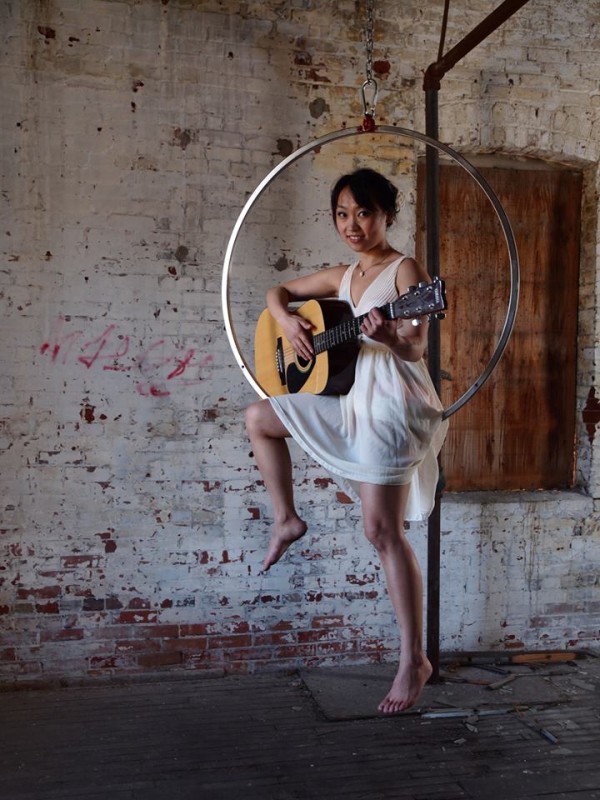
What is your opinion of Asian sex trafficking and how much does the issue affect your life?
KZ: It doesn’t affect me a lot in my work as a dominatrix, though as a massage worker, it did affect me somewhat— I’ve had clients who have asked me whether or not I’ve been trafficked.
It’s actually in sex worker activism, rather than sex work, that I am most affected by the issue of human trafficking, dealing with abolitionists who dismiss what I say as my being a puppet of the “Pimp Lobby” or unrepresentative of the average coerced sex worker.
HLF: Sex trafficking would disappear if sex work became legalized and regulated.
CV: The issue of trafficking does have an impact on my life but not in the way some people might think. I’ve written [more specifically] about this topic here. The way trafficking and sexual slavery is portrayed in the media, in the arts, and in discussions in the broader community means that people hearing that discussion think that Asian sex workers lack agency and don’t have a voice. This becomes an issue when people, including clients, believe that rhetoric and question my agency.
Nada: People are quick to put money and emotional energy into rescue operations when they can’t give a rat’s butt about actually making it possible for sex workers to help themselves—like fighting for law reform and safe working environments. It’s like either we are white people’s victims or we are the “bad girls.”
The reality is probably not so black and white. I think this whole issue about brown people being nothing but helpless slaves shows exactly how racist everyone is, to so readily believe the LIES that are often spread by NGOs [non-governmental organizations] directly supporting HARM to sex workers by increasing stigma and helping [the rescuers] forcefully take Asian sex workers in third world countries to “rehabilitation clinics” and deport migrant Asian workers in First World countries.
Did you have any Asian sex worker role models coming into this work? Do you have any now?
Nada: Yes, I look at Christopher Lee, a transgender pornographer/director of “Alley of the Tranny Boys.” He was a really really great guy—always understanding, always there for you. I am glad to have known such a person and to have starred in his first FTM porn as the token female. We all miss him. These days, I look up to Christian Vega a lot—we are totally different personalities and I can’t say he “gets it” all the time, but he is very community oriented and great with sex work politics. I admire all the qualities he possesses.
KZ: Asia Carrera is my all-time favorite sex worker. My dream is to have lunch with her, and maybe work on some kind of project with her.

CV: It was so hard to find anyone to look up to growing up as a male, queer, Asian baby whore. But I guess that’s why I’m driven to write and broadcast and put myself out there heaps—filling a gap that I experienced growing up. In Australia, I find Jules Kim, manager of the Scarlet Alliance Migration Project, totally inspirational. She’s pretty babin’, too.
HLF: One of my whore mothers was Asian, and she just made it [sex work] sound so fucking glamorous and easy and hot.
What would your ideal form of sex work be? (Say, in this fantasy, you’d be paid $250K for it.) What would your dream client look like and what would you do with the money after?
HLF: As my whore mother told me, “Don’t be a whore if you don’t like fucking older white men.” And I do. I really do. Especially if they’re shy. So give me a sweet-natured, stammering 57-year-old retired accountant with a soft belly, and I’m happy whether you pay me or not. But if you just handed me $250k, shit, I’d probably buy some of those Vibrams Five-Finger toe shoes and fucking save the rest. In a very sensible Roth IRA. Because I’m Asian.
NF: My dream would be a tropical vacation. Maybe for a week. (OKAY, I can dream of getting 250k for a week). But realistically, I would be aching to get back to my art work in a week. My [dream] client would be someone that understands good food, loves sex, an engineer or programmer.
KZ: With that kind of money, I would rent out a strip club, and do themed fantasy nights, where clients get to walk around playing ice breaker games with sex workers. Maybe I’d create some kind of app on the smartphones, you know: everybody answers a few questions about themselves, creates a profile, and gets a compatibility score—clients get to walk around in search of their sex worker soulmate, who is somewhere in the room, revealed only through some unique and unexpected fact scribbled on a pad of sticky notes.
CV: That’s a lot of money. It would have to be some bizarre job like spending a couple of months at a base station in the Antarctic, shagging scientists. I’d save half for an awesome adventure and the rest for bail.
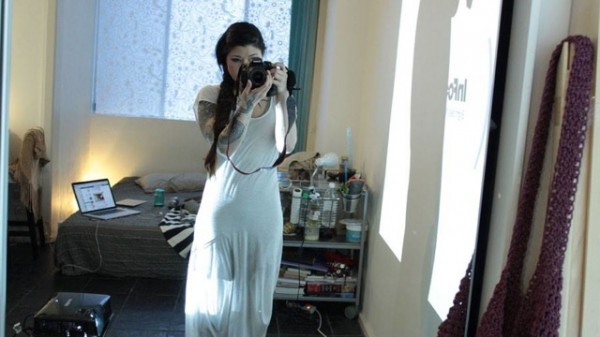
What do you see as the future of Asian sex workers?
HLF: No idea. Never think of it.
Nada: I have no idea. We might be rounded up and burned at the stakes after the facade of needing to “rescue” us is quickly exposed [as a fraud]. But that will probably happen to all other sex workers as well. Things are going very retrograde. More and more conservative all the time. I don’t see any positive changes happening soon.
CV: I think Asian sex workers are world leaders in the sex workers’ rights movement. I think their efforts to organize and advocate for their rights is unmatched in the world, in organizations like the Empower Foundation, Durbar Mahila Samanwaya Committee, Women’s Network for Unity, the TOP foundation, and Zi Teng. As new opportunities to hear about their experience emerge through avenues like social media, I believe they will continue to challenge stereotypes about Asian sex workers and inspire more and more people to be active in the sex workers’ rights movement, just as they have inspired me.
1. Ho Lee Fuk is Taiwanese. He did sex work full-time for the better part of a year in his mid-30s because he was bored and unemployed and he wanted to see if it was really as fun as his whore friends made out to be. So he put up an ad on Craigslist and got a shitload of clients, but then Craigslist decided to do away with the Erotic Services section amidst some bullshit hysteria. “I didn’t put an ad up elsewhere because I’d had my fun, I’d made my money, I was off the manic phase of my mildly bipolar cycle, and I started a really well-paying day job, so I just kind of carried on with my regulars for a while, which was fine. Is. Was. I’m pretty much mostly retired. And yeah. It really was as fun and as awesome as I’d imagined. More.” ↩
2.Nada has worked in many different area of sex work- stripping, escorting, brothel work, tantric practice—mostly in the US and Australia. She is passionate about art and technology. You can find her work here, here, and here. Nada’s favorite lube is MIXGLISS PURE — it smells really really amazing and sexy, and hides the bad condom smell.↩
3.Christian Vega is a sex worker, community development worker, and activist. Christian (aka: Tyson Quorren-Smith amongst other aliases) has been involved with sex work for the past 15 years. He has worked in a number of health and community responses for sex workers and other socially excluded peoples. He is also one of the co-directors of the Festival of Sex Work and part of the Scarlet Alliance (elected National Representative of Australian Male Sex Workers 2007-2012). In 2013, Christian started to broadcast a sex worker radio show on JOY 94.9, The Vixen Hour. Alongside this experience, Christian’s sex work career spans many contexts, from street work to escort agency work to private work with special needs clients. His favorite lube is Swiss Navy Silicon Lube, because he enjoys the irony of the name.↩
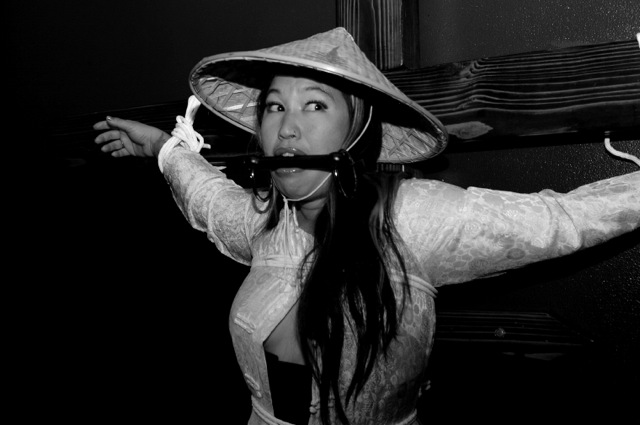
This was a very enjoyable read!